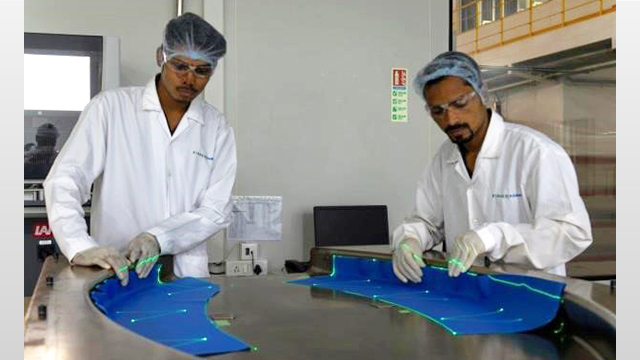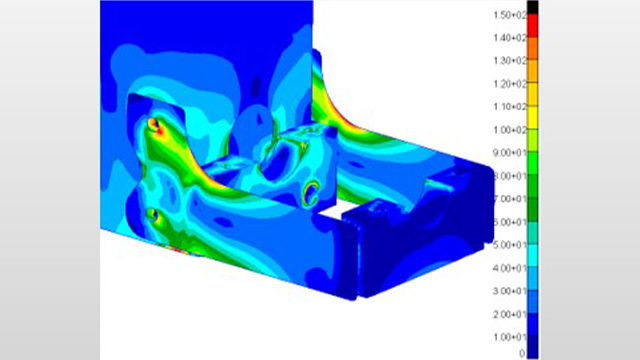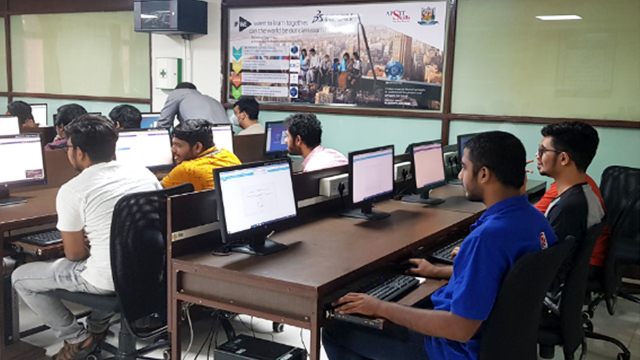CASE
STUDY
- Home /
- Case study /
- SFC Solutions India(Sealing) Private Limited.
Behaviour Prediction Analyses for Automotive Dynamic Seals using FEA
AutomotiveElastomer Simulation SFC Solutions India(Sealing) Private Limited.

Overview
SFC Solutions India (Sealing) Pvt. Ltd. (formerly Cooper Standard India Pvt. Ltd.) is a market leader and tier-1 supplier of automotive sealing systems. Its product portfolio includes glass run seals, door seals, embedded profiles, and metal belts in addition to fluid and brake delivery systems and fluid transfer systems. It counts several leading automotive OEMs including Tata, Maruti Suzuki, VW, Renault-Nissan, FORD, FIAT, and many others among its clients.
Automotive seals have a significant role in the automotive design process, given that they are associated with passenger comfort. They help reduce noise levels and prevent rainwater from entering the vehicle. In addition, they also help conserve energy used for air-conditioning/heating as they don’t allow air to escape from the cabin. Elastomers (Ethylene Propylene Diene Monomer (EPDM) rubbers) are the most widely used materials in the design of automotive sealing systems.
Challenges
EPDM materials typically exhibit non-linear behaviour when subjected to loading. This non-linearity function of the material can be captured by testing the tensile slabs of the EPDM materials. At SFC Solutions, different types of material tests namely Uniaxial Tensile Testing, Stress Relaxation, Planar Tension Testing and Uniaxial Compression Test are performed on every material. Further, this experimental data is used to capture the non-linear behaviour and obtain Mooney-Rivlin constants of the material.
One of the main challenges for extruded sealing rubber products is to validate seal performance in different loading and environmental conditions. At SFC Solutions, several types of analyses are performed such as insertion and retention forces, compression load deflection (CLD) forces, as well as seal relaxation and corner bending behaviours. These analyses help to predict the seal performance.
It can often be challenging to predict the behaviour of the seal in different loading conditions and have good correlation. Therefore, it is important to develop CAE methodologies for every analysis and have a good correlation with the extruded product.
Solution
The team at SFC Solutions India selected Marc from the MSC Software suite, a powerful, general-purpose, nonlinear finite element analysis solution to accurately simulate the product behaviour under static, dynamic, and multi-physics loading scenarios. One important factor was Marc's versatility in modelling nonlinear material behaviours and transient environmental conditions. The team also used Mentat, a dedicated pre- and post-processor used to support Marc. Marc Mentat’s advanced experimental curve fit feature simplifies the task of calculating material constants with ease using the experimental data. It also helps develop CAE methodologies for every analysis such that good correlation is achieved.
Approach
The design process for seals can be fairly complex. Once the SFC Solutions team receives a Request For Quote (RFQ) from a client, the design engineers initiate the design process based on the BIW data & specifications provided. Once this is done, the team gets started with the Computer Aided Engineering (CAE) process.
The materials used are also tested separately in the lab to create a material model for each material. The material models are developed by using experimental test data from different types of tests. These material models then help predict the behaviour of the seal more accurately.
Let’s take the example of dynamic seals i.e., door seals and tailgate seals. The door seal and tail gate seal are located on the door and trunk of the vehicle respectively. The door seal is extruded with EPDM sponge material and the tailgate seal is co-extruded with EPDM dense material, EPDM sponge material, and a metal carrier. Understanding the CLD (Compression Load Deflection) and bending behaviours of each of these seals can help prevent the entry of water and manage noise levels in the vehicle. Once a part is manufactured, it has certain tolerances. These tolerances are then added back to the CAE design to optimize the design further.
Below is an example of a door seal header section. Here, CLD analysis was performed to evaluate the forces that act on the door of the car. Firstly, CAE analysis was performed on the CAD section and later the results were correlated with the extruded section of door seal. The test and FEA conditions were maintained constant (Test speed, orientation of profile, materials, test fixture). Results show that around 85% of correlation is achieved between the extruded part and the CAD design. The difference is because of the manufacturing tolerances and man- machine errors caused while testing the parts.
 Door Seal Section
Door Seal Section
 Door Seal CLD CAE Analysis
Door Seal CLD CAE Analysis
 Door Seal CLD Correlation
Door Seal CLD Correlation
Below is another example of a tail gate seal. Here, 3D bending analysis of the seal is performed. The objective was to evaluate the bending performance of the seal at R 80 and 1060 angle. Simulation predicted the occurrence of bulb collapse at the bending region. When the same part was prototyped and checked manually for bending response, the bulb collapse phenomenon was observed. Here, MSC Marc was efficient to predict the bending response of the seal.

The SOLIZE team worked closely with the SFC solutions team to quickly overcome any issues around material modelling, licensing etc.
Benefits
- Better Correlation
With MSC Marc, the SFC team has been able to achieve very high level of co-relation in their simulation and experimental test results, translating into significant time and cost savings. - Experimental Curve Fitting
The software’s capability to allow for experimental curve fitting using physical test data has proven to be especially useful since it helps SFC Solutions optimize the design effectively. - Multiple Types of Simulations
The software is used to perform several different types of simulations to validate the product for various conditions and scenarios.
“MSC Marc helped us significantly in simplifying the design process, since it delivered superior correlation with experimental data. The SOLIZE team worked with us closely to help us quickly overcome any issues around material modelling, licensing etc. We appreciate the prompt support provided by the team at all times.”
- Raghavendra Reddy Madur
Sr. Engineer CAE-Design, SFC Solutions India(Sealing) Private Limited., Pune.



